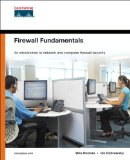Difference Between Hardware Firewall and Software Firewall

In computing, a firewall refers to a system that shields a private network or stand alone computer system from malicious internet traffic, unauthorized remote access or any kind of attack. Firewalls can be used to control access to a particular system within a network for instance a corporate network of a bank, a firewall can be used to restrict access to a sensitive banking system to particular employees. Depending on the organization’s security needs, traffic is filtered based on a set of security rules. If for example a packet of data coming into the network is flagged by the firewall filters as having a breach on the defined rules, it will be denied entry to the network. Methods through which a firewall can regulate traffic in and out of a network include packet filtering, a proxy service or stateful inspection. A firewall can either be a hardware or software firewall. Ideally, a firewall should consist of both.
Hardware firewalls are typically built within the infrastructure of broadband routers and are a very important part of a network setup especially on a broadband connection. A hardware firewall can be very effective with minimal or no configuration and can guard every machine on the local network. It uses packet filtering to check a packet’s header for source and destination details, which information is then compared with a set of pre defined security rules. The packet will be forwarded if it meets the rules or otherwise dropped. Although any user with some computer knowledge could plug in to the hardware firewall and have it work by adjusting a few settings, there are specific features of the firewall that need some skills to be optimally configured for security. Also, the hardware firewall has to be tested to ascertain that it meets the defined security rules and this cannot be done by any ordinary user.
Software firewalls are simply software programs installed on computers to filter traffic in and out of that computer. They are a very popular firewall choice especially with home users with a few home computers. Software firewalls basically protect computers from common threats such as unauthorized access to a computer, email worms, common Trojans and other forms of malicious software. Most of these firewalls provide user defined controls that allow the set up of secure file sharing as well as peripherals like printers or scanners and block suspicious applications from running on the machine. As an add-on, software firewalls may have controls for privacy settings and web filtering. The major disadvantage of this type of firewall is that it will only protect the particular machine on which it is installed rather than an entire network, requiring each computer to have a firewall installed don it. There is a range of software firewalls to choose from, depending on your security needs but a good software firewall is one that will always run in the background on your system while utilizing limited resources.
Summary
Hardware firewalls are specifically built within hardware devices like routers whereas software firewalls are software programs installed on computers.
Hardware firewalls protect a whole network while software firewalls protect individual computers on which they are installed.
By default, hardware firewalls filter web packets while software firewalls may not filter web packets unless web traffic filtering controls are enabled.
A hardware firewall can be configured to use a proxy service for filtering packets while a software firewall does not use a proxy service to filter packets.
- Difference Between Nuts and Bolts - August 2, 2010
- Differences Between Crystal and Gold Silver - August 2, 2010
- Difference Between Crystal Reports and Web Intelligence - August 1, 2010
